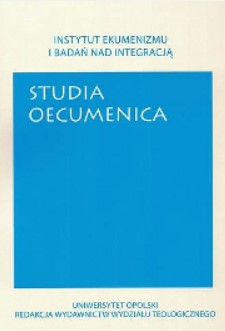The Importance of the Autocephaly of the Orthodox Church of Ukraine for the Confessional Policy of the Russian Federation in Central and Eastern Europe
The Importance of the Autocephaly of the Orthodox Church of Ukraine for the Confessional Policy of the Russian Federation in Central and Eastern Europe
Author(s): Marcin Orzechowski, Grzegorz WejmanSubject(s): Christian Theology and Religion, Politics and religion, Eastern Orthodoxy, Other Christian Denominations, Politics and Identity
Published by: Uniwersytet Opolski
Keywords: Autocephaly; Orthodox Church of Ukraine; Russian Orthodox Church; confessional policy; Eastern Europe;
Summary/Abstract: The subject of the article is an analysis of the impact of the Orthodox Church of Ukraine’s autocephaly process on Ukraine’s relations with the Russian Federation. Orthodoxy understood as both a religious institution and a denomination, has been a constant and most important component of Russia’s identity since the very beginning of its existence. It remains the dominant religion in the Russian Federation, despite the religious diversity resulting from the multi-ethnic nature of the state. The aim of the article is to analyze the role of the Orthodox Church in the internal and foreign policy of the Russian Federation. In Russian-Ukrainian relations, it played an important role in supporting activities such as the annexation of Crimea or support for pro-Russian separatists in the Donbas. The position of the Russian Orthodox Church in contemporary Russia is also associated with a specific type (model) of the policy pursued by that state, referred to as “confessional policy (diplomacy)”, integrally connected with the issues of religious security of the country. The analysis of the content of the program documents of the state institutions of the Russian Federation and internal organizations of the Russian Orthodox Church allows to distinguish the so-called differentia specifica, characterizing the community of assumptions and the identity of actions undertaken by state and church institutions in Russia. Church institutions are perceived as the so-called the “national” church of the Russian Federation. This results in the Church becoming entangled in various parapolitical affiliations, which in turn has specific implications in the political and interfaith sphere. The authors, on the basis of the conducted analysis, conclude that the autocephaly of the Orthodox Church of Ukraine is essential for the country’s independence from Russia – it strengthens the Ukrainian national identity and limits Russian influence in this country.
Journal: Studia Oecumenica
- Issue Year: 2021
- Issue No: 21
- Page Range: 133-147
- Page Count: 15
- Language: English

